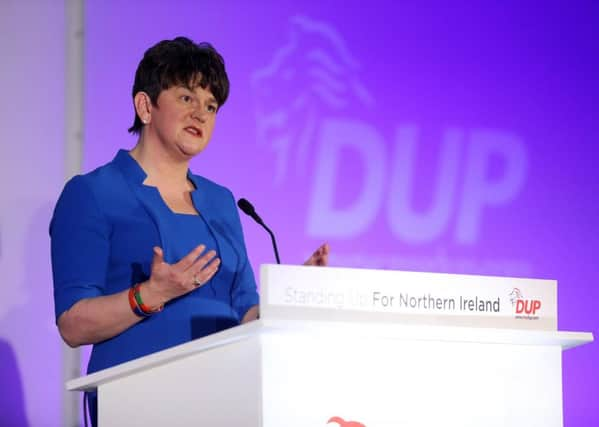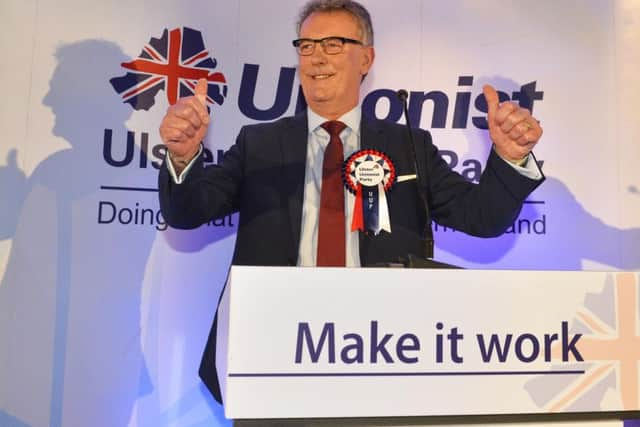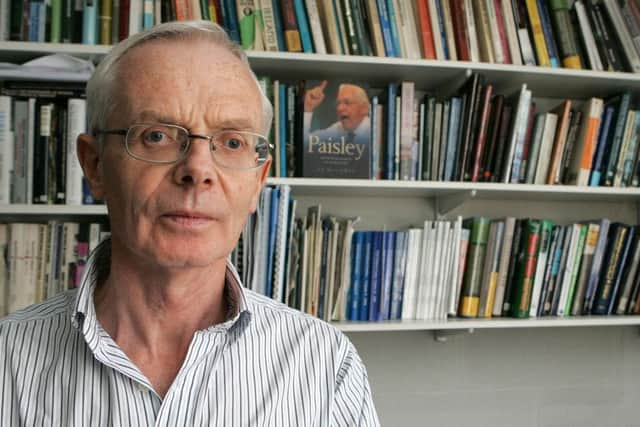Election: Henry Patterson '“ DUP is relying on Foster's appeal while UUP aims at liberal voters


Although Arlene Foster may be an electoral asset for the party it is precisely her un-representativeness that achieves this – she is a female leader of a party with a female membership of only 28% and has not been noted for the stridency of her religious views in a party with prominent members like the current Minister of Finance who upbraided the Ulster Museum for an exhibition on Darwin and evolution which did not show a creationist alternative.
In 2016, as in the 2011 election, there are two sides to the DUP’s election campaign – to depict the party as the principal governmental force capable of maintaining and improving Northern Ireland’s economy and public services while at the same time alerting the unionist electorate to the danger that this progress will be endangered if the DUP do not emerge as the largest party.
Advertisement
Hide AdAdvertisement
Hide AdThe emphasis in the manifesto is largely ‘bread and butter’ politics but, as in 2011, local election literature and posters foreground the importance of returning sufficient DUP MLAs to prevent a Sinn Fein First Minister.


The context however is very different.
In 2011 the Sinn Fein surge of support within both states had yet to peak and so the threat, exaggerated as it was even then, had a potential mobilising effect, which it may lack this time around.
The last Westminster and local government elections pointed to a levelling-out of Sinn Fein support and with the possibility of losses to left-wing opponents in West Belfast and Foyle, the fear of a republican as First Minister, may prove less of an electoral asset this time.
In 2011 the UUP had a disastrous campaign with a number of high profile retirements and some embarrassing defections to the Alliance Party.


Advertisement
Hide AdAdvertisement
Hide AdTheir leader Tom Elliott was a weak media performer and unlike Foster was never able to transcend his Fermanagh origins to be taken seriously as a leader of northern unionism.
The party came out of its worst-ever election result with many commentators predicting its demise as its electorate was lost to the DUP on its right and Alliance on its left.
However, last year’s improved performances in local and Westminster elections showed there is still a space for a less strident, more liberal variety of unionism.
In Mike Nesbitt the UUP has a more assured media performer and the party no longer suffers the debilitating divisions of the past.


Advertisement
Hide AdAdvertisement
Hide AdThe salience of issues like abortion and same-sex marriage may help the UUP as both tend to remind the electorate of the DUP’s fundamentalism.
Although commentators and politicians have noted on how ‘bread and butter’ issues have dominated the campaign on the doorsteps this has not been reflected in a serious engagement by the parties on economic issues.
There is no difference of substance between the two parties on their approaches to the economy with both relying on a reduced rate of corporation tax as a game-changer and no mention in either of the large public sector redundancies agreed as part of the Fresh Start agreement or the cuts to the block grant necessary to finance the corporation tax cut.
In contrast to the contest within nationalism there is no serious class-based challenge to the dominant unionist parties with the partial exception of the PUP while the newly founded branches of the Labour Party have been sabotaged by their National Executive’s decision not to allow them to stand in this election.


Advertisement
Hide AdAdvertisement
Hide AdThe result has been a lack of serious debate about the future of the Northern Ireland economy and instead large commitments to job creation, an improved NHS and infrastructure investment without the slightest attempt, with the exception of the Alliance Party, to explain how these will be financed, particularly in a period of continuing austerity policies nationally.
• Henry Patterson is Emeritus Professor of Irish Politics at University of Ulster